On December 14, one month out from the 2012 Olympic Marathon Trials, fastest qualifiers Ryan Hall (2:04:58) and Desiree Davila (2:22:38) spoke to the media via teleconference. Among the topics: How their lives have changed since the last Trials.
For Hall, who set a Trials record (2:09:02) with his runaway victory, the past four years have brought some changes – perhaps most notably leaving coach Terrence Mahon and relying on spiritual guidance to coach himself – but have largely seen a continuation of his success, including running the fastest marathon ever by an American with his 2:04:58, fourth-place finish in this spring’s Boston Marathon.
“I definitely feel like a much more developed marathoner, and much more experienced obviously,” said Hall, 29, from his home base in Redding, CA. “I’m very grateful for all the experiences I’ve had, good and bad, since the last Trials and Olympic Games. I’ve learned to train better, learned to listen to my body better. We’ve had some changes that have yielded some good results. I definitely feel more prepared for these Trials.”
 For Davila, however, it’s a whole new world.
For Davila, however, it’s a whole new world.
“I’m across the board a completely different athlete,” said Davila, 28, who qualified in 2008 with the 93rd-fastest time. “I’ve progressed in pretty much every distance. I think the main thing this time around is experience, just having done several marathons in high-pressure races and been able to perform well in those. Heading in I have a lot of confidence just from that.”
While Hall took an early lead and won the 2008 Trials by more than two minutes, Davila was in fourth place late in the race, contending for a spot on the team, before fading for finish 13th. Since then she has run each marathon faster than the last, highlighted by a thrilling duel down Boylston Street last spring in the Boston Marathon, where she finished just two seconds from victory in 2:22:38, the fastest time by a U.S. woman last year by more than two minutes.
“When I think about all my marathons, that was definitely the biggest learning experience,” said Davila of the 2008 Trials, speaking from her winter training base near Orlando, FL, with her Hansons-Brooks Distance Project team. “It was the second one and I was being aggressive and it turned out it was something we weren’t quite ready for. I just made rookie mistakes, like not taking fluids and pressing a little too hard when I didn’t need to. I kind of panicked when I found myself in the hunt. That took me by surprise. Just having that, and learning from that in the last four years I think every time out I’ve gotten a little better at those little things that caused me to blow up at the Trials. All of that hopefully they all come together this time around.”
“Aggressive” is a racing style that Hall has long embraced. Asked if he thought he might run these Trials more conservatively than the last, he was quick to answer: “You know me. I don’t like that approach. It doesn’t work for me. Whenever I’m playing conservatively I don’t tend to do well, and that’s something that I’ve learned a lot. I gotta be me out there, I gotta be the Ryan that’s excited and that’s champing at the bit. That’s the me you’ve seen at the Boston Marathon when I’m leading and pressing and making the pace hard. I need to be myself out there, and myself is not running conservative.
The women’s field for the Trials is undeniably the fastest and deepest ever – Davila said that four years ago she thought that if she had a really good day and ran 2:32 she could sneak onto to the team but “it’s just completely different this time around and that’s the kind of team you want to be a part of. If you can make it in Houston, you’re going to be on one of the best Olympic teams ever.” This time, she predicted, it will take 2:24 to win, and 2:28 to make the team.
“I don’t think I’ll have the luxury of running conservative,” said Hall, echoing back to the earlier question. “I think the men’s field is equally as talented as the women’s field, but maybe just a couple of years behind them. Some of that talent hasn’t quite come to the surface yet. I think we could see those guys who make the team all running very fast.” He said he thought the top three would all need to run under 2:10.
If they do, it will be the first time since the men’s Trials were first run as a single race in 1968. The fastest third-place time for men is 2:10:55, set – ironically – in 1980, when the U.S. did not send a team to Moscow because of the Olympic boycott. The women’s record book would also be rewritten: the winning Trials mark of 2:28:25 was set by Colleen de Reuck in 2004, and the fastest third-place time, 2:29:57, belongs to Jen Rhines from the same race.
For the first time, the men’s and women’s Olympic Marathon Trials will be run on the same course and on the same day. So, on January 14, 2012 – exactly one month from now – we’ll know if Hall and Davila were right.
Listen to the complete audio file of the media teleconference hosted by USATF on December 14, 2011 below.



Leave A Comment
You must be logged in to post a comment.